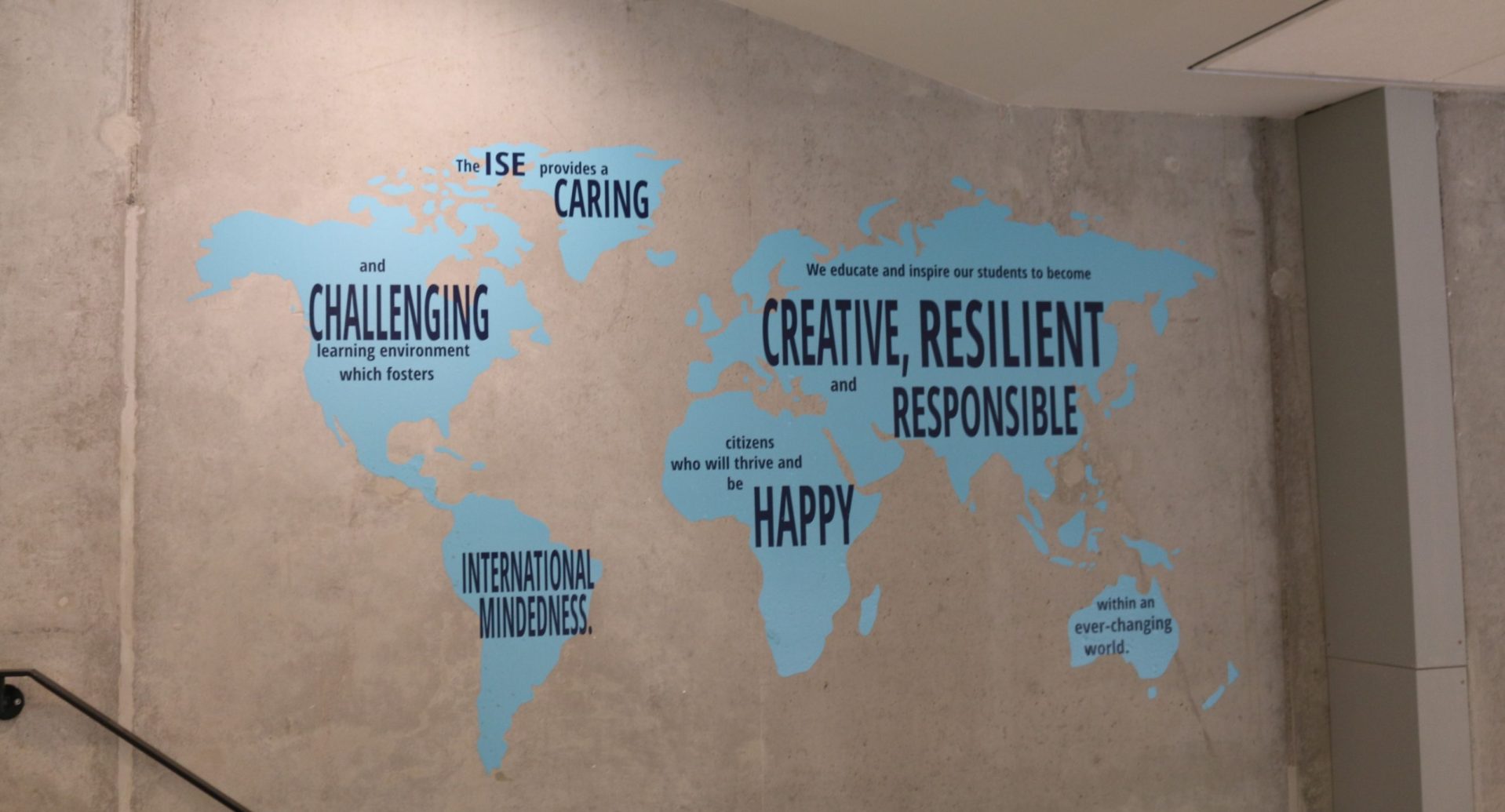
ISE Guiding Statements

The ISE provides a caring and challenging learning environment which fosters international mindedness. We educate and inspire our students to become creative, resilient, and responsible citizens who will thrive and be happy within an ever-changing world.
A. Our internationally-minded community is committed to being responsible citizens.
In this regard, we are expected to:
- Demonstrate respect for human rights
- Understand the relationship between rights and responsibilities within society
- Be PRINCIPLED by interacting with honesty, fairness and OPEN-MINDEDNESS
- Encourage our community members to appreciate and express BALANCED views
- Act in a CARING, responsible, and supportive manner
- COMMUNICATE in a respectful, courteous and thoughtful manner.
- Develop international-mindedness
- Value the language and culture of the Netherlands
- Celebrate and respect our cultural identities
- Foster linguistic development for cultural understanding
- Contribute to and collaborate with the school, Brainport, national and global communities
B. Our learning environment ensures that students are KNOWLEDGEABLE, cared for and sufficiently challenged.
In this regard, the ISE offers nationally and internationally recognized curriculums to support the diverse educational needs of our students.
Students are expected to:
- Discover the joy of learning
- Learn how to learn, and how they learn best
- Maintain the fluency of their home languages while valuing the acquisition of others
- Attain depth and breadth of academic knowledge and understanding
- Develop the skills that support intellectual and academic success
- Solve problems independently and in cooperation with others
- Understand modern technologies and be able to use them wisely and effectively
- Prepare for the demands of further education
- Learn how knowledge is acquired and justified in each subject area, and what problems there may be with such justifications and the certainty of our knowledge
Staff are expected to:
- Deliver the curriculum with an international perspective
- Respond sensitively to the full range of students’ individual needs
- Challenge and support students to achieve academic potential
- Create opportunities to enable students to develop their talents, skills and discover their passion
- Involve students, staff and parents, as partners in the educational process
- Provide an environment which allows new members to quickly settle and develop a sense of belonging
Parents are expected to:
- Work in partnership to support student learning
- Share their knowledge of their child’s interest, achievements, and special skills
- Be knowledgeable of the ISE’s curriculum and opportunities to support and challenge their child
- Act in a manner consistent with the ISE Code of Conduct
- Take part in electing parent representatives to the School Participating Council (MR)
C. The ISE community prepares students for an ever-changing world by developing their capacity for creativity.
We will support the development of students’ creativity by
Teaching for Creativity
- Value, acquire and utilise a variety of tools for learning and teaching which promote inquiry, comprehension and the relationship between concepts
- Provide regular feedback to students which praises and thereby promotes creativity
- Develop critical, reflective thinkers who have the ability to make responsible choices
- Utilise strategies which require collaboration, and focus on creative problem solving, design thinking, and the application and understanding of technologies
- Provide opportunities for the students to take responsibility for their own learning using a variety of strategies.
- Offer a range of disciplines including those associated with activities outside the classroom and extracurricular opportunities.
Creating A Culture for Creativity
- As educators, value the input of others, be accepting of constructive criticism, and recognize that lesson planning, strategic planning, and problem-solving will benefit from the positive exchange of ideas;
- Demonstrate flexibility in working with others and in the use of space, and resources;
- Demonstrate the willingness to share ideas, expertise, and knowledge to inspire students to learn, accept challenge, develop greater depth in their understanding, and to take risks in offering their own views, opinions, strategies, and efforts.
- Create an atmosphere in which students value creativity, reflection and the positive exchange of ideas, and which promote a growth mindset.
